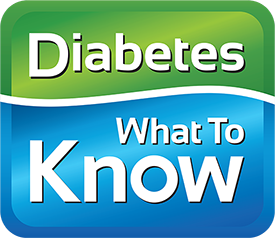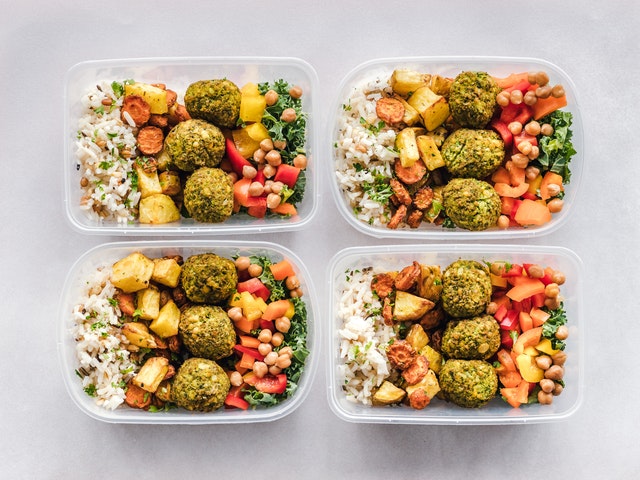By Melinda D. Maryniuk, MEd, RD, CDE
If you’ve been diagnosed with pre-diabetes, you may feel confused about what you should eat now. Don’t worry – a diet that’s healthy for pre-diabetes is easy to stick to once you know a few simple guidelines, which we outline below.
What is pre-diabetes?
Pre-diabetes is defined as a fasting blood sugar (glucose) between 100 and 125 or an A1C between 5.7-6.4 along with some other factors. Anything higher than that is classified as type 2 diabetes.
Is there any way to prevent pre-diabetes from turning into diabetes?
A diagnosis of pre-diabetes does not mean that type 2 diabetes is inevitable. There are some lifestyle changes you can make that can slow or even prevent a pre-diabetes diagnosis from becoming type 2 diabetes. Specifically, increasing physical activity and weight loss are associated with a decreased risk of getting diabetes…. but there are additional things you can do that can help. Here are ten tips for simple changes you can make to have a healthier life whether you are at risk of diabetes or not.
#1 Be Active. Research shows that moderate activity (such as brisk walking) at least 150 minutes a week (that’s a 30 minute walk, 5 days a week) is an important part of decreasing the risk for diabetes. In addition to aerobic activity, include some strength-building exercises (like exercises using resistance bands) to keep muscles strong.
#2. Lose Weight, If You Are Overweight. Aim to achieve and maintain a 7-10% loss of body weight. That means, if you weigh 200 pounds, losing 14-20 pounds will really help to reduce your risk of getting diabetes.
#3 Structured Support Helps. While there is not one best diet for weight management and reducing risks of diabetes, evidence shows that structured weight loss therapy, involving a low calorie meal plan and physical activity with ongoing support, such as through a group or online program, is very helpful. (See #10…)
#4 Quality Counts. A meal plan rich in vegetables, fruits, whole grains, legumes, nuts, lean sources of protein and low in ultra-processed foods is recommended. Some foods are associated with a decreased risk of diabetes including nuts, yogurt, berries, whole grains, coffee and tea. On the other hand, sugar sweetened beverages (like soda, sports drinks and energy drinks) and red meats are associated with an increased risk of diabetes.
#5 Use Your Plate as a Guide. Watch portion sizes and balance the mix of foods on your plate by aiming to fill half your plate with non-starchy vegetables (salad greens, broccoli, tomatoes, spinach), one-quarter with a lean protein (chicken, fish, tofu) and one-quarter with a starchy carbohydrate food – a higher fiber choice is best (such as a whole grain roll, brown rice or corn).
#6 Avoid Sugary Drinks. Soft drinks and sweet tea offer no nutritional value and can have a detrimental effect on your blood sugar. Juices are also full of sugar and can cause blood sugar spikes. Water is your best choice for hydration.
#7 Add Fiber. Fresh fruits and vegetables should be 50% of your plate and are a great source of vitamins and minerals your body needs. Beans and whole grains are also excellent choices for adding fiber.
#8 Choose Plant Fats. Steer clear of animal fats. Use olive, canola, or avocado oil when cooking. Nuts, seeds, and avocados are another delicious choice that contain healthy fats.
#9 Use Moderation with Alcohol. You can still enjoy a cocktail, beer or glass of wine occasionally, but it’s best to have that drink with a meal to keep blood sugar levels stable. Skip drinks made with high-sugar mixers.
#10 Join a Nationally Recognized Program. Check this website to find a Diabetes Prevention Program that meets national standards (and thus may be reimbursed by your insurance plan). While most programs are in-person, many are also offered remotely. The information you’ll learn about diabetes prevention and support from others in your group is a winning combination for success.
Making just a few small changes in your current diet can have a significant effect on blood sugar. There are wonderful resources online like Diabetes – What to Know and other websites that can inform and empower you to make the changes you need. Sign up for our weekly email program and learn more about managing your blood sugar from medical professionals and watch the stories of people who say they are healthier now thanks to learning how to make some healthy changes.
The medical information on Diabetes – What To Know’s website is provided as an information resource only. The content is not in any way intended to be nor should you rely on it as a substitute for professional medical evaluation, diagnosis, advice and treatment.

